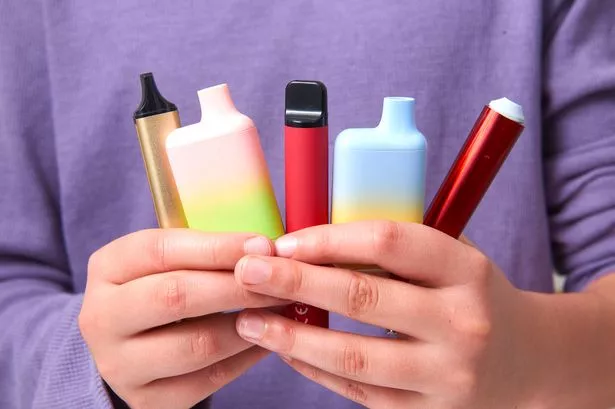From June next year, the sale of disposable vapes will be banned in England and Wales. The move is part of the government's strategy to curb the rise in vaping among young people and to protect the environment, with approximately five million single-use vapes littered or thrown away every week in the UK in 2023, the Mirror reports.
Minister for Public Health and Prevention, Andrew Gwynne, said: "It's deeply worrying that a quarter of 11-15-year-olds used a vape last year and we know disposables are the product of choice for the majority of kids vaping today. Banning disposable vapes will not only protect the environment, but importantly reduce the appeal of vapes to children and keep them out of the hands of vulnerable young people."
But when does the ban take effect, which products does it apply to, and how do you dispose of vapes safely? Markus Lindblad, a Nicotine Retailing Expert from Haypp, has shared his insight. He explained: "Disposable vapes are set to be banned in summer 2025, with the UK government giving suppliers a deadline of 1st June 2025 to get rid of all stock across England.
"It is only disposable vapes that will be banned. Adult vapers will still be able to access refillable and reusable vapes." He added that the government might consider a ban on flavoured vapes in the future.
"Whilst different authorities have raised concern over flavoured vapes, the UK government has not yet confirmed whether or not they will be banning all flavoured vapes. In the Tobacco and Vapes Bill they do intend to address the rise in youth vaping, which could possibly mean restricting vape flavours that appeal to children. However, at this moment in time, nothing has been confirmed," Markus explained.
READ MORE: Doctor warns about serious and 'scary' health risks associated with vaping
READ MORE: I don't eat ultra-processed food — this is my healthy breakfast with no sugar
Accordingly, people may be looking to dispose of vapes, but it's crucial to do so safely due to the fire risk. The expert said: "Like anything with a battery, vapes should be recycled. This is true of single-use vapes and rechargeable vapes. There are specific ways to recycle vapes, due to the battery inside. It is always good to check how to dispose of vapes in your local area to find the correct methods and recycling options near you," Markus advised.
He also offered guidance for those seeking alternatives to vaping. "Whether it's nicotine pouches or gum, there are plenty of alternatives to vapes available on the market. It's really important people do their research and find what alternative is best for them," he recommended.
"Nicotine pouches can be a good step towards quitting smoking, as they are discrete, smoke free, don't harm the surroundings and are less harmful. In fact, research by Haypp found that 95% of smokers felt better after changing to nicotine pouches."
Information about the resources available for anyone aiming to stop smoking and vaping is accessible from the NHS and Better Health.






















